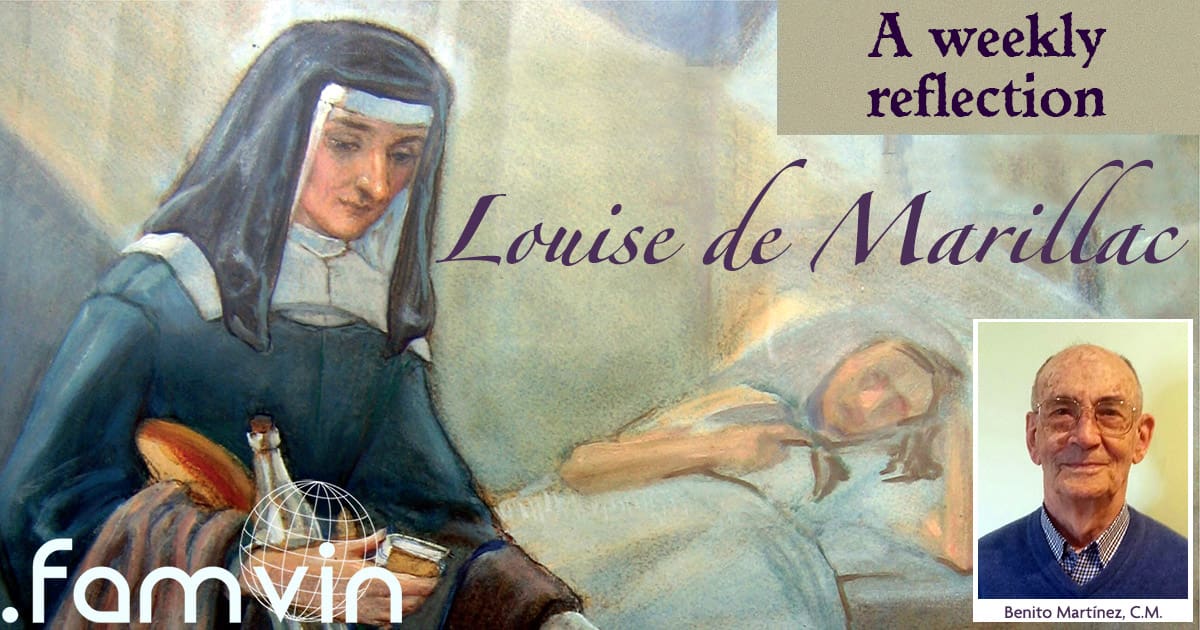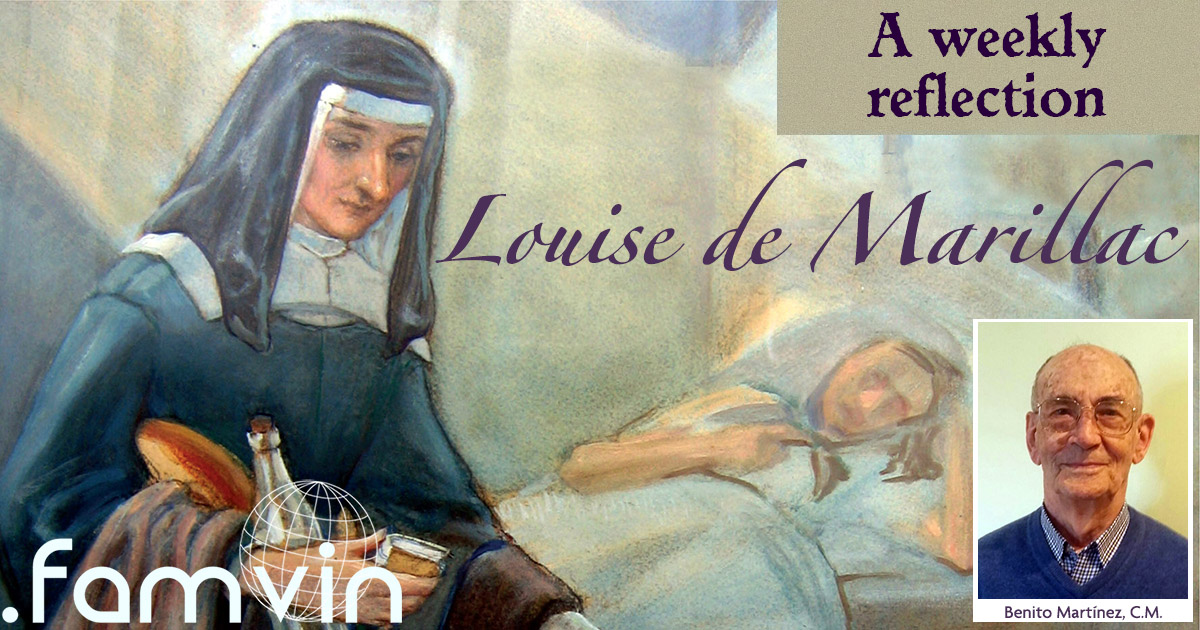Respect between the Native-Born and Muslim Immigrants • A Weekly Reflection with Louise
“How many heretics have been converted since the Daughters of Charity have been working in the hospitals! Recall that, in 1659, a sister who had been in the hospital of Saint-Denis said that, during the year, five or six heretics were converted, including the son of a Protestant minister, without counting several previous conversions. All this was done under a veil of silence. Would to God that it had not been necessary to mention it, since this manner of acting is in keeping with the first commandments of the Founder of the Company, Jesus Christ, speaking through His servant. We are told to honor His hidden life. This is essential for the strength of this Company which, one day, may perhaps have the grace to be employed, not in the city, but in the service of the peasants according to its original end or I rather, according to God’s first design for it” (A. 100).
Louise de Marillac, personal note and letter to Sister Barbara Angiboust.
Reflection:
- In the time of Saint Louise, France endeavored to respect between Catholics and Huguenot heretics. French Protestants were allowed to live according to their religion for peace and progress. More than a right of the person, tolerance was granted by kings as a policy of government.
- Wars and violence have been provoked by intolerance of peoples’ sense of sovereignty and the right to emigrate to other nations in search of work and well-being, despite being a human right declared untouchable by the United Nations on 10 December of 1948.
- The mutual respect we need today, to live in peace, is between native born people and immigrants, mostly Muslims. Although Islam presents itself as tolerant, since Muhammad founded it in the seventh century, it has had the will to conquer the world. This claim has now intensified the Islamic State (ISIS), a Sunni extremist group that seeks to establish a Universal Caliphate. Its members, the jihadists, have an extremist interpretation of Islam and believe that they are the only real believers. They think that the rest of the world —the non-believers— want to destroy their religion, thus justifying their attacks on the Western world.
- This Caliphate is a form of state headed by a political and religious leader according to Islamic law, or sharia. Although it has only a presence in Syria and Iraq, the Islamic State has called for the support of Muslims around the world and demands that everyone swear allegiance to their leader (caliph).
- Although there are Muslim countries which do not respect the rights of other religions, marginalizing and expelling persons for not being Muslim, the Vincentian Family is aware that all individuals and nations are free and sovereign with the right to self-govern and self-determine.
- Because we are Christians, Vincentians also have a more transcendent motive: we are all children of the same Father, brothers and sisters redeemed by Jesus Christ and welcomed by the one Spirit of the Father and the Son. And because we are followers of Saint Vincent de Paul, Saint Louise de Marillac and Blessed Feederic Ozanam, we see many immigrants belonging to the poor classes.
- The three Founders understand respect as the force of the Spirit of Jesus that leads us to welcome the differences of others in a pleasant coexistence. It acts as support and pillar in the building of the Vincentian Family.
Questions for dialogue:
- Do you respect the autonomy of each person, and her/his dignity?
- Do you consider that each person is as valuable as yourself, and that you should treat each person with the same respect as you would like to be treated?
- Do you do to others what you would not like them to do to you?
- Do you allow each person to make decisions for him or herself, to be him or herself?
- Do you condemn people who do not share your views?
- Do you accuse the poor, regardless of the factors that cause poverty? Do you denigrate their dignity by humiliating them?
Benito Martínez, C.M.
Tags: Louise de Marillac








0 Comments